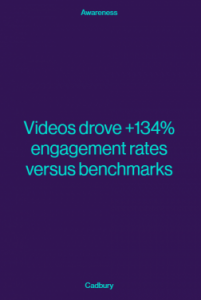Whether you’re a rookie looking for work or a professional contemplating on a career change, knowing if the job is for you will always be a riddle. The only way to find out is to work for the company and experience the management itself—well, that’s what many people think. The ideal job, however, would be a position where you can do what you love as success is often achieved when you enjoy what you do.
Getting a job that suits you can put an impact on your future and career. Therefore, it’s important to gather all possible details about a company before saying yes to their offer – from the boss’s attitude, to how the facilities look, to how employees are managed.
If you’re still unsure, here are five ways to know if the job is for you.

1. Analyze your goals carefully.
Many factors force people into the wrong occupations: family expectations, financial stability, and convenience. Without deeply understanding your objectives upon entering the workforce, you’re more likely to be prone to anxiety and stress due to job dissatisfaction.
Goals are important because they help you set the purpose of your career and provide more value to what you do. They allow you to have both short and long-term visions of where you want to be. Goals aren’t just unfulfilled plans; they are motivators that encourage you to go further, especially during challenging times.
Hence, you should determine your purpose: Are you looking for a job that’s full of learning opportunities? Take a job that can nurture its employees and provide trainings. Are you looking for a position that offers challenging roles and pays a lot? Take a job that requires multi-tasking and work experience. After thoroughly understanding your goals, you can narrow down your options and distinguish companies whose demands are aligned with your plans.

2. Identify your strengths and weaknesses.
In a warzone, soldiers don’t go to battle with just a random weapon in their hands. Instead, they prepare a specific firearm and allot a substantial amount of ammunition. Applying for a job is the same. You don’t just click on the “apply button” for every posting you see, and describe yourself as flexible and well-rounded; there’s no such thing as being “the perfect employee.”
Know yourself first and identify what you’re good at, what you’re really good at, and what you’re not so good at. When you know your strengths and weaknesses, sorting out jobs that suit your skills and experiences will be easier. Having a background of your identity as an employee makes job hunting simpler by helping you distinguish companies whose demands require your expertise.

3. Establish your definition of a good company.
Apart from landing a job, attending an interview has another vital role in your quest as a hopeful applicant: it’s the chance to determine if the job title is right for you.
Although an uninviting office interior is a factor in determining a company’s desirability, some companies are still reliable despite the lack of attention to its facilities. Keep in mind that a good company nurtures not only the business, but also its employees. It doesn’t overwork its people and gives positive reinforcement.

4. Find out if the pay compensates the “other responsibilities” section.
When offered a higher salary, people are quick to take the bait without actually thinking if there’s a catch. They only realize that not all risks are worth taking after they’ve experienced the workplace.
One of the vaguest parts in a job description is the “other tasks as may be needed” section. On the surface, it may seem like a light, unconsuming task like helping another department or colleague. When in reality, it’s a lot bigger than that. These “other responsibilities” could possibly overuse your skills. Say you indicated in your resume that you’re a freelance PowerPoint designer. Falling into the wrong company could lead you to creating several presentation designs, regularly and without any compensation, when your job description is really for a marketing position.

5. Be (very) alarmed about high attrition rates.
Sometimes, a good work attitude doesn’t always help you get through the storm, especially when you’re in a company with little empathy for its employees. The fact that their attrition rate is high indicates a lot of negative impressions about the company: toxic culture, understaffed departments or poor management are some possible reasons—reasons that could burn you out or traumatize your work experience.
Being open to a job opportunity isn’t wrong. What’s important is that you think about it as if it were a million-dollar question. Before committing yourself to a company, remember that every decision has an equivalent advantage and disadvantage. This is why it’s highly recommendable to weigh out every deciding factor: the pros and cons, short-term and long-term effects, and alignment to your skills and experience.
REFERENCES:
Christian-Taylor, Kema. “5 Warning Signs That Mean You Shouldn’t Take The Job.” Forbes. April 11, 2016. www.forbes.com/sites/kemachristiantaylor/2016/04/11/5-warning-signs-that-mean-you-shouldnt-take-the-job
Helmrich, Britney. “Career Confusion? 9 Tips for Choosing Between Job Offers.” Business News Daily. August 17, 2015. www.businessnewsdaily.com/8281-job-offer-decision-tips.html
Lees, John. “How to find the right job for you.” The Guardian. November 27, 2012. www.theguardian.com/careers/how-to-find-right-job-for-you
Ryan, Liz. “Five Signs You’ll Hate The Job If You Take It.” Forbes. June 12, 2016. www.forbes.com/sites/lizryan/2016/06/12/five-signs-youll-hate-the-job-if-you-take-it
Taylor, Nicole Fallon. “How to Choose the Best Job for You.” Business News Daily. September 30, 2015. www.businessnewsdaily.com/4975-choosing-the-best-job.html
“Personal Goal Setting: Planning to Live Your Life Your Way.” MindTools. 2016. www.mindtools.com/page6.html
Business & Finance Articles on Business 2 Community(80)
Report Post









